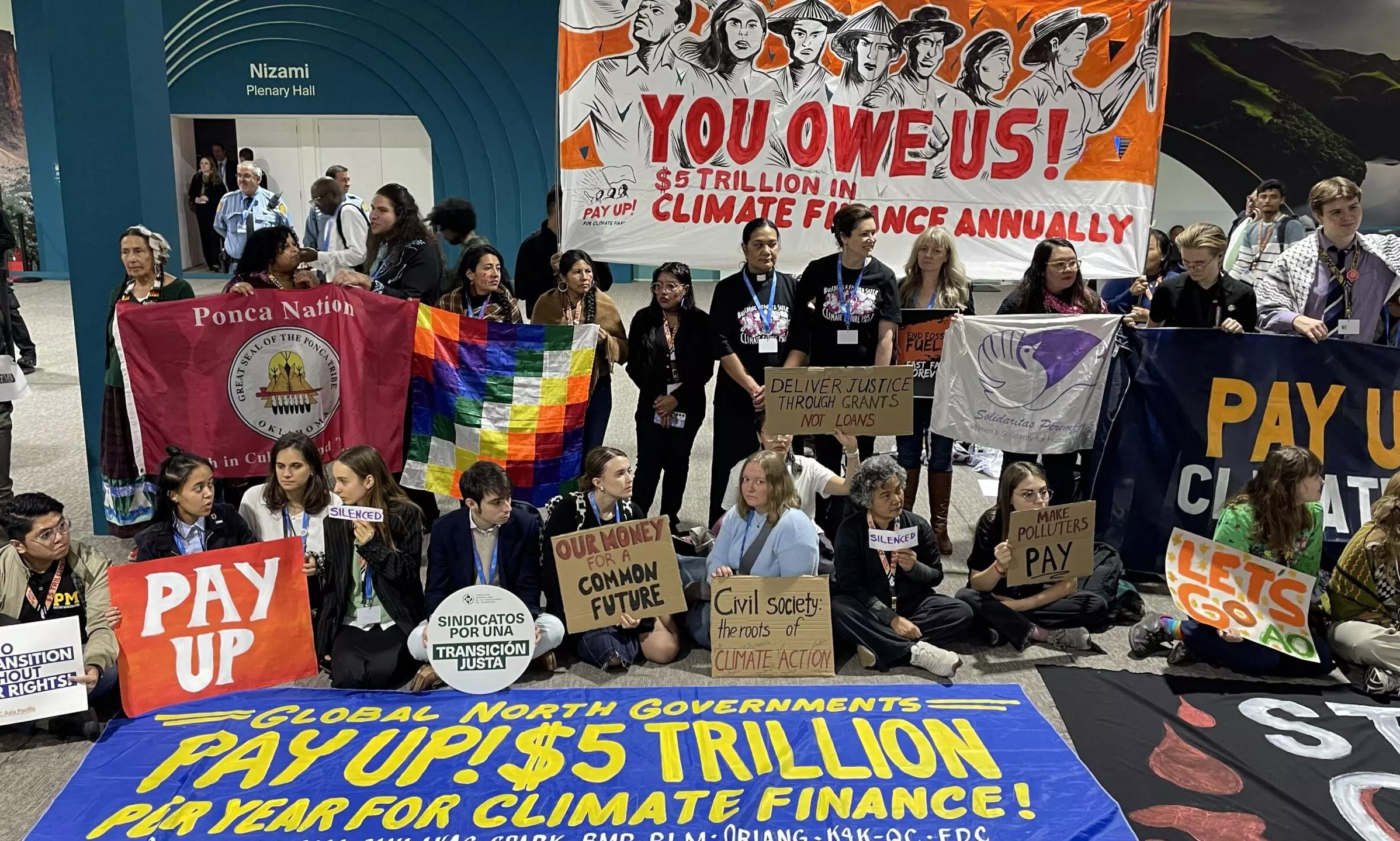
COP29: Developing nations blast $300 billion climate deal as insufficient
text_fieldsClimate activists attend a protest at Cop29 in Baku, Azerbaijan, on Saturday.
Baku: The United Nations Climate Change Conference (COP29) concluded in Azerbaijan on Sunday with a landmark agreement to triple public climate finance to developing nations, setting a core target of $300 billion per year by 2035. However, the outcome has drawn criticism from developing countries and climate advocates, who argue that the target falls short of addressing the scale of the global climate crisis.
The 'Baku Finance Goal', announced after two weeks of intense negotiations, builds on prior COP milestones, including the establishment of the Loss and Damage Fund at COP27 and commitments to phase out fossil fuels made at COP28. It aims to channel $1.3 trillion in total annual climate finance from public and private sources to developing nations by 2035.
India strongly criticized the New Collective Quantified Goal (NCQG), rejecting it as insufficient to meet the needs of developing nations. Leena Nandan, Secretary of India’s Ministry of Environment, Forest, and Climate Change, said the world needs $1.3 trillion annually by 2030, but the agreed $300 billion per year is "far too little and too distant" to address the challenges. Adviser Chandni Raina from India’s Department of Economic Affairs expressed disappointment, alleging the process was "stage-managed" and biased against developing nations.
Critics, including Harjeet Singh of the Fossil Fuel Non-Proliferation Treaty Initiative, labeled the agreement as inadequate, stating it failed to provide the necessary resources for vulnerable countries to transition to renewable energy or prepare for climate disasters. Singh argued that the deal "offers false hope" and leaves vulnerable communities under-resourced in the face of escalating climate challenges.
The COP29 agreement calls for developed nations to lead the mobilization of climate finance. However, concerns were raised that much of the funding could come as loans instead of grants, potentially increasing the financial burden on developing nations. Climate experts also highlighted the need for innovative and accessible financing mechanisms to ensure equity.
Naresh Pal Gangwar, Additional Secretary at India's Environment Ministry, with Chandni Raina, member of India's negotiating team.
Simon Stiell, Executive Secretary of the UNFCCC, described the deal as "an insurance policy for humanity," emphasizing the importance of timely and full payments to achieve its intended impact. He noted that no country got everything it wanted from the agreement, and much work remains ahead.
Climate advocate Chiara Martinelli criticized the finance goal, arguing that even with the tripling of the previous $100 billion target, the increase is minimal when adjusted for inflation. Indian expert Dipak Dasgupta welcomed certain provisions, such as innovative financing mechanisms, but stressed the need for grants rather than loans to make a meaningful difference.
UN Secretary-General António Guterres acknowledged the complexity of the negotiations and urged nations to build on the agreement. He emphasized the need for stronger climate action as countries prepare to submit updated Nationally Determined Contributions (NDCs) in 2025 to keep the 1.5-degree Celsius temperature limit within reach.
While COP29 achieved significant milestones, including progress on Article 6 of the Paris Agreement and the operationalization of the Loss and Damage Fund, the mixed reactions highlight ongoing challenges in bridging the gap between the needs of developing nations and the commitments of developed countries.
With IANS inputs























